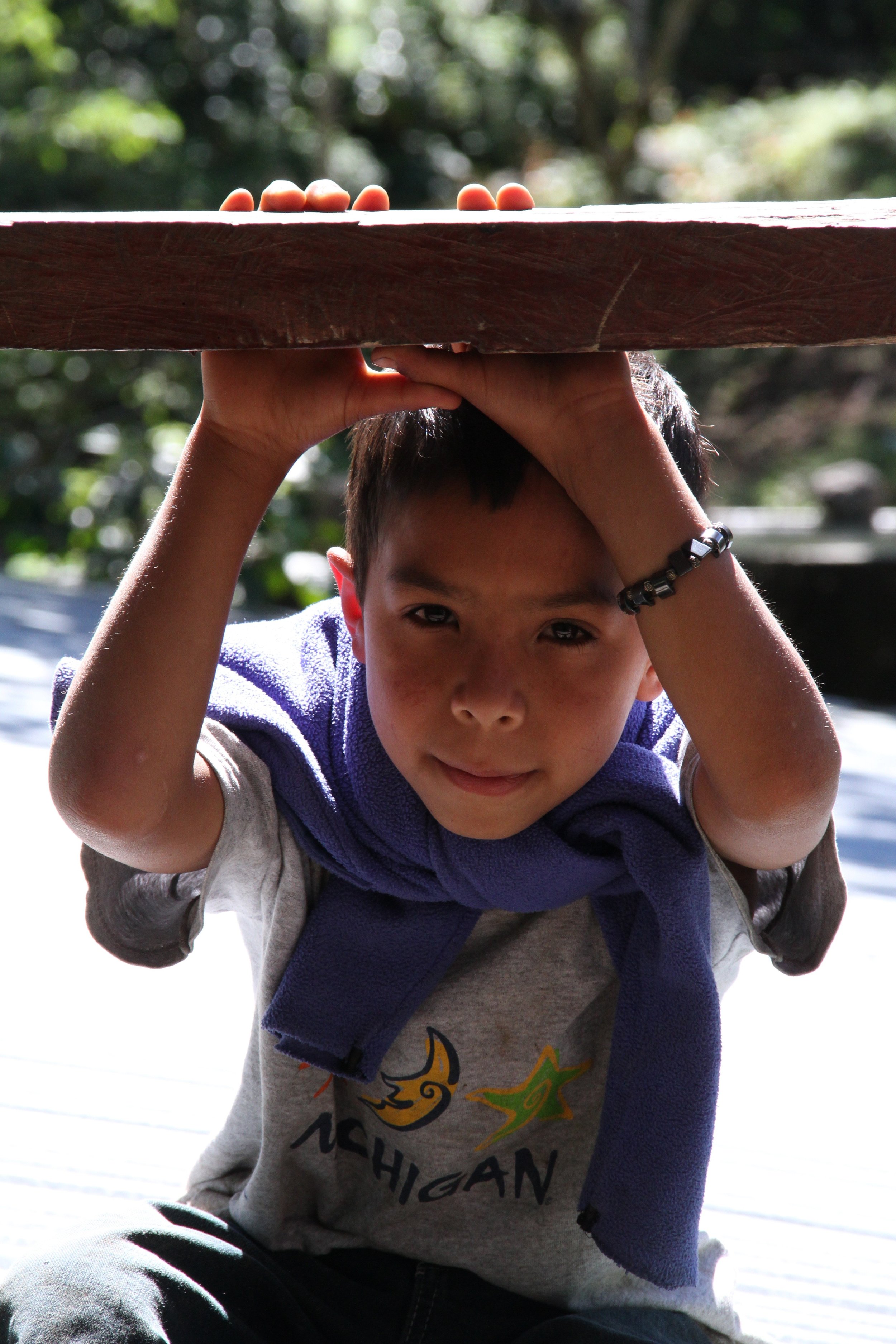Freyder: A study of Nicaraguan relationships
Posted on personal blog January 11, 2012
Today in the El Sontule community of the Miraflor Nature Reserve, all the guides are busy picking and transporting coffee to de-pulping mills or drying patios. It’s January, the height of the coffee harvest in Nicaragua. Therefore the responsibility falls to Freyder Enrique-Games, age nine, to show visitors the area, his first job as a tour guide. As we march up the road, our host, the woman whose house Freyer has grown up in, hollers that we should to be back my noon for lunch.
His tiny rain boots come up to his knees. They’re covered in mud, as he hikes quickly up the mountain trail. He pushes a rain-laden coffee plant out of his way and then slips backwards through the mud. Catching himself by sticking both his hands in the black muck, he quickly straightens and runs the next few steps to make up for his fall. Freyder wipes his hands on his backside. Then he picks a red coffee cherry and offers it to me to suck on the fruit’s sweet pulp.
Freyder has lived in the Marvin Pérez-Villarreyna household since he was three months old. His story is not uncommon in Nicaragua.
Freyder Enrique-Games sitting at the community coffee de-pulping mill. Photo courtesy of Michael Beall.
“My mom is with her man in another community, and my dad has a woman somewhere else,” he said. “But I call Marvin papa.”
Freyder’s brother, Javier, age 12, also lives with Pérez-Villarreyna family. He doesn’t know why they don’t live with their parents, but for now it doesn’t matter. He is all business right now giving his first tour.
Differences in amorous relationships change across borders and cultures
Relationships among Nicaraguans are terribly confusing, said Ronald Knaap, a graduate student from the University of Wageningen in Holland. Knaap has been living with the Pérez-Villarreyna family for over a month studying the application of Fair Trade coffee practices for his Master’s thesis.
“One man will have a woman in Miraflor and another in the city in Estelí, and the women know about each other, but that seems to be ok,” Knaap said. “I just don’t quite get it yet.”
The Nicaraguan dating and marital world bemuse Knaap and me both. I don’t mean to say that all Nicaraguan relationships lack fidelity. I’ve no right to make such assumptions and I’ve been able to spend time with a precious few families. They’ve been wonderfully welcoming, all of them. My time in their homes has been intrusive and disruptive to their daily lives I’m sure, but not a word of it is mentioned. They’re quick to smile, give handshakes, directions and words of wisdom. I’ll forever treasure these gifts. They painstakingly teach me to make tortillas, milk their cows and knock down papayas. Their kindness makes me loath the idea that my plane flies out tomorrow.
But I do note a trend in how fidelity is perceived differently here.
Jane “Juanita” Boyd, an English ex-pat and business owner in Estelí, spoke to me about her failed Nicaraguan marriage for an earlier blog post.
“My relationships are very scrutinized,” Boyd said. “Women here are strong in their own way, but they tolerate unfaithfulness in a way that I can’t. Some still can’t understand why I left my husband.”
One of my Nica friends knew his father only when he was a toddler. There are photographs to prove this, but the father lives in another region with his wife and their half a dozen children. He’s friends with some of them on Facebook. They found each other because they share the same last name.
Another type of relationship experienced here in Nicaragua these past few weeks have been the spurts of passion between travelers. The majority of us are young and reckless, with intent to seize the day, spend as little money as possible, and make the best use of every hour in our foreign adventure. With little responsibility and accountability, it’s a sleep-deprived riot. Hostels are a magnificent engine to meet these people and develop unforgettable friends and more – for $7 USD one can purchase a dorm room, communal area, book share and hammock for 24 hours to further their Nicaragua experience with each other.
But I digress.
It’s not yet 5:30 a.m. and I awake to hear the tap-tap-tap of Mafabia Pérez-Villarreyna patting out the day’s tortillas. Rolling out from under my mosquito netting, I join her in the kitchen and am handed plantains to slice and fry. Surprisingly Marvin is there grating cabbage that will be mixed with eggs and cream to fill the breakfast tortillas. My last day in Nicaragua and it’s the first time I’ve seen a man helping in the kitchen here. Breakfast was delicious.
Freyder and his friend, Mani, greasing up their ride. Photo courtesy of Michael Beall.


